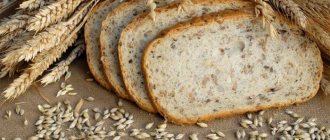Drinking alcoholic beverages has an extremely negative effect on the condition of the entire gastrointestinal tract. Once in the stomach and duodenum, it corrodes the protective membrane, provoking the development of various diseases.
- Read in the article:
- What is gastritis and how does it manifest?
- What kind of alcohol can you have for gastritis?
- Beer for gastritis
- Wine for gastritis
- Vodka for gastritis
- Whiskey for gastritis
- Cognac for gastritis
- Non-alcoholic beer for gastritis
- Alcohol for gastritis with high and low acidity
- Safe alcohol for the stomach
- Alcohol and Helicobacter pylori
- Alcoholism treatment at the AlkoZdrav clinic
Treatment prices:
| Sign up for a free and anonymous consultation with a narcologist | 0 ₽ |
| Initial consultation with a narcologist | for free |
| Consultation with a psychologist in person or Skype | 3 000 ₽ |
| Psychiatrist consultation | 5 000 ₽ |
| Psychodiagnostics / pathological diagnostics | 7 500 ₽ |
| Narcopsychotherapy | 50 000 ₽ |
| Consultation with a psychologist and selection of a treatment and rehabilitation program for an addict | for free |
| Intervention session | 12 000 ₽ |
| Social rehabilitation of alcohol addicts | for free |
| Outpatient rehabilitation in Moscow | 33 000 ₽ |
| Standard rehabilitation program | 40 000 ₽ |
| Intensive rehabilitation program | 80 000 ₽ |
| Premium rehabilitation program | 120 000 ₽ |
| Medical and social rehabilitation (21 days) | 150 000 ₽ |
| Rehabilitation Spain, Bulgaria | 200 000 ₽ |
| VIP rehabilitation program | 350 000 ₽ |
| Online addiction rehabilitation course | 28 000 ₽ |
| Rehabilitation of age-related alcohol addicts | 50 000 ₽ |
| Rehabilitation of drug addicts | 60 000 ₽ |
| Adolescent social-psychological-pedagogical rehabilitation | 70 000 ₽ |
| Psychotherapy | 5 000 ₽ |
| Family psychotherapy | 6 000 ₽ |
| Support groups for loved ones of addicts | for free |
| Webinars for relatives of addicts | for free |
| School for codependents | 3 000 ₽ |
| Transfer support | negotiable |
| Motivation for treatment | 6 000 ₽ |
| Escort to the clinic | 6 000 ₽ |
| Testing (urine/blood/hair) | specify |
Expand
Still have questions? Call us!
8
Free consultation and appointment
Alcohol is especially dangerous for people suffering from gastritis or peptic ulcers, since drinking causes an exacerbation of these diseases and provokes a sharp worsening of symptoms. It is better for those suffering from these diseases to completely avoid alcohol. But if you couldn’t avoid drinking, if pain occurs, you should immediately consult a doctor.
What dose of alcohol is considered safe?
According to the recommendations of the World Health Organization, men can drink up to 10 liters of pure alcohol per year. This dose is considered safe for health. Russian narcologists adhere to more strict limits: up to 8 liters per year with mandatory abstinence from alcohol 3-4 days a week. At the same time, women are allowed to drink one third less alcoholic beverages. This can be explained by the fact that for the weaker sex, alcohol consumption is associated with great risks. There is less water in the female body, so the concentration of alcohol in it, and therefore toxic substances, will be greater. In addition, the body of the fairer sex produces fewer enzymes involved in the breakdown of alcohol, so it is excreted more slowly.
What is gastritis and how does it manifest?
Gastritis is a disease of the digestive tract characterized by damage to the gastric mucosa. The resulting irritation and erosion can cause pain, inflammation, internal bleeding and other discomfort.
The main cause of gastritis is the presence of the bacterium Helicobacter pylori in the digestive tract. The following factors can provoke the development of the disease:
- Eating disorders – overeating, irregular eating;
- Diet – plenty of fatty, spicy or fried foods, fast food on the menu;
- Smoking and drinking alcohol;
- Frequent stress;
- Reflux;
- Taking aspirin or non-steroidal anti-inflammatory drugs (NSAIDs).
Depending on how the disease progresses, gastritis can occur in acute and chronic forms. Acute gastritis causes severe irritation and swelling of the mucous membrane, which is affected by digestive juices. This form is characterized by the following symptoms:
- Stomach upsets,
- Stomach pain
- heaviness,
- Intestinal bloating
- Heartburn, nausea and vomiting (including on an empty stomach),
- Increased gas formation,
- Bleeding.
Chronic gastritis can occur almost unnoticed. The patient may have constant mild pain, a feeling of fatigue, problems with appetite, and anemia. But if alcohol enters the stomach, burns will occur on the walls of the stomach, causing a severe deterioration in the general condition. With regular exposure to irritants, they will develop into ulcers, which has even more serious consequences, including death.
Content:
- What Causes Inflammation
- Types of gastritis
- Treatment Options
- Diet
- Alcohol for gastritis of the stomach: can you drink it?
- What alcohol can you drink for gastritis with high and low acidity?
- What alcohol can you drink if you have gastritis caused by Helicobacter pylori
Gastritis is damage to the stomach lining that can cause a variety of symptoms, from abdominal pain to bleeding. At the same time, many people ask the question: “Is it possible to drink alcohol with gastritis?” While the answer may seem obvious, there are several nuances
What kind of alcohol can you have for gastritis?
The degree of impact of ethanol on the walls of the stomach depends on the strength and quality of the alcohol, the frequency of its consumption, as well as the selected snack, which can partially suppress the irritating effect of drinking.
If gastritis worsens, you should avoid any alcoholic beverages. Especially if treatment is carried out using antibiotics. Alcohol, even in small doses, can aggravate the situation and lead to more serious consequences such as stomach ulcers, stomach cancer, inflammatory diseases and internal bleeding.
But if the patient has undergone full treatment and gastritis has gone into remission, he can afford to drink alcoholic beverages in small quantities. At the same time, it is important to strictly monitor the quality of alcohol, the doses consumed and the combination of drinking with a good snack. Getting even weak alcohol into an empty stomach will lead to an exacerbation of the disease. Low-quality alcoholic drinks, such as beer or cocktails, are strictly contraindicated, as they lead to disruption of microflora and intoxication due to incoming preservatives and other chemical compounds.
But we are talking only about periodic and strictly controlled alcohol consumption. People who drink regularly inevitably develop gastrointestinal diseases - inflammation of the stomach tissue, atrophic gastritis, ulcerative conditions, etc.
Beer for gastritis
On the one hand, beer is contraindicated for people with gastritis if the disease is accompanied by increased stomach acidity, since this drink stimulates the production of digestive juice and the concentration of sulfuric acid in it. But on the other hand, it has been proven that this drink can protect against Helicobacter pylori infection because it contains an antibacterial component.
Most scientists agree that drinking small amounts of high-quality unfiltered beer occasionally is only possible for patients with gastritis in remission. The problem is that in Russia it is almost impossible to find such a product that does not contain preservatives and other additives, and most modern analogues of this drink contain, in addition to ethanol, many compounds that are dangerous to the stomach, causing beer gastritis and other serious exacerbations.
Alcoholic gastritis: the concept of who is at risk
When you abuse strong alcoholic drinks (vodka, cognac), the inner walls of the stomach are constantly exposed to the burning effect of ethanol. As a result, they receive a severe chemical burn, as a result of which the mucous membrane becomes covered with wounds or ulcers. Alcoholic gastritis occurs. There are two types of pathology.
- Acute form. Formed when taking a large dose of strong alcohol (vodka, cognac). Due to the low absorption rate, ethanol lingers on the mucous membrane for a long time, constantly destroying it.
- Chronic form. This is a slow progression of the disease. Cells in the stomach walls gradually die, which can later lead to ulcers. There is an alternation of two stages - exacerbation (pain, burning sensation) and remission (painless course of the disease). Chronic alcoholic gastritis occurs with prolonged and regular consumption of alcohol. Even drinks with a low degree (cocktails, champagne) with constant drinking can lead to this pathology.
Main symptoms of the disease:
- nausea or vomiting, especially in the morning;
- belching after eating;
- heartburn.
The main sign of alcoholic gastritis is dulling of nagging (aching) pain in the upper abdomen after drinking alcohol. This analgesic effect is deceptive - after a while the discomfort returns, and the disease becomes more severe.
During the treatment of this type of gastrointestinal disease, it is important to completely eliminate all alcohol-containing drinks.
Treatment calculator
Field score:
Total score:
Patient age
Length of use
What he uses Has he previously undergone treatment Consent to treatment Concomitant diseases Employment
Waiting for values to be entered
Wine for gastritis
Good wine
– the most harmless alcohol for the stomach, which can have a positive effect on the mucous membrane and protect digestion from infection. But only if the person does not exceed a dose of 200 ml per day. If wine is consumed in excess, it has an extremely negative effect on the digestive system and stimulates the development of stomach diseases.
Vodka for gastritis
In the remission stage of gastritis, the patient is allowed to drink 100-200 grams of vodka, but only if it is impossible to give up drinking. Under no circumstances should this drink be consumed frequently, as it contains a large amount of ethanol, which corrodes the protective lining and leads to irritation of the stomach walls.
Whiskey for gastritis
Whiskey
is a strong alcoholic drink with many different impurities that have a detrimental effect on the state of the gastrointestinal tract. Therefore, if you have gastritis, it is better to completely avoid drinking whiskey or martinis, giving preference to good red wine or a glass of quality vodka, but only in the rarest cases.
The mechanism of alcohol's effect on the gastrointestinal tract
Strong drinks negatively affect all mucous membranes of the gastric and intestinal tract. The disinfecting properties of ethanol, moreover, lead to an imbalance of microflora with the destruction of beneficial bacteria.
After entering the oral cavity, the alcohol-containing liquid begins to exert its destructive force, and drinks stronger than 40 degrees. cause a chemical burn on the surface of the mucous membranes.
The following negative processes also develop:
- motility of the esophagus and the entire tract is impaired;
- organs will be exposed, in fact, to the influence of one of the effective natural solvents;
- the digestive tract becomes inflamed;
- varicose veins occur;
- the production of mucin, a substance that protects the stomach, is blocked;
- appetite increases;
- the production of saliva in the mouth decreases (which leads to the risk of injury from coarse food particles and inhibition of the onset of digestion);
- the production of hydrochloric acid and gastric juice increases, which further corrode the walls;
- partial blockage of the capillaries occurs and absorption deteriorates.
As a result, the internal walls become thinner, becoming defenseless against toxins and other threats. The danger here also lies in the fact that drinking dulls sensitivity, so it mistakenly seems that the existing pain goes away somewhere.
To minimize the consequences of exposure to drinks, you need to clearly know what alcohol you can drink with gastritis and follow certain recommendations.
License and certificates:
Cognac for gastritis
In the remission stage of gastritis, no more than 100 grams are allowed. cognac no more than once a month. More frequent consumption of this drink will lead to rapid development of the disease and possible serious consequences.
Non-alcoholic beer for gastritis
Nonalcoholic beer
- This is a completely artificial drink, the taste of which is imparted with the help of chemical compounds and incoming gases, and its preservation is ensured by preservatives. Such a drink becomes a real bomb for the stomach, leading to irritation and inflammation, so its use is contraindicated for gastritis.
Complications of gastritis
Some people think that they can live with such a pathology for the rest of their lives. But, alas, advanced forms of the disease can lead to such terrible conditions as:
- peptic ulcer of the stomach or duodenum (duodenitis);
- development of pancreatitis, cholecystitis;
- the occurrence of neoplasms;
- profuse bleeding with rapid entry of a large volume of blood into the gastrointestinal tract;
- hemorrhagic shock with critical consequences.
Therefore, before drinking another glass or glass, you should think a hundred times whether alcohol is safe for gastritis of the stomach, and whether a rash act will become an unnecessary trigger - a direct provoking factor.
Alcohol for gastritis with high and low acidity
In 1993, studies were conducted that showed that weak alcohol (less than 5%) can stimulate the secretion of hydrochloric acid in the stomach, while stronger drinks either have no effect on this process or have a suppressive effect on it.
Vodka, whiskey, tequila and other drinks with a high ethanol content do not affect the release of gastrin, while low-alcohol drinks have a powerful effect on the production of gastric juice and the release of gastrin. The maximum effect on this process is observed when drinking beer drinks.
If a person has gastritis with high acidity, beer, champagne and white wine are strictly contraindicated. In the remission stage and on very significant occasions, only small doses of strong drinks are allowed.
Diet
In the alcoholic form, the mucous membrane not only swells, but also weakens. To speed up its healing, you should avoid:
- sour, peppery, salty foods,
- fried,
- too sweet
- dairy products,
- tomato,
- fruit juice,
- soda,
- caffeinated drinks,
- drugs, cigarettes or NSAIDs
On the other hand, natural products can be used as protection. Reduce the strength and ability to reproduce Helicobacter pylori:
- broccoli,
- cabbage,
- apples,
- berries,
- honey,
- olive oil,
- tea,
- garlic,
- celery,
- beans.
High fiber foods help the stomach heal wounds, improve intestinal function and help the body avoid digestive problems. These include:
- carrot,
- greenery,
- spinach
- oatmeal,
- nuts and seeds,
- radish,
- beet,
- green bean.
Fatty meats such as ground beef or pork can worsen symptoms. To avoid additional stomach irritation, it is better to choose chicken or turkey.
Since anemia and vitamin B-12 deficiency are common during illness, try to include in your diet:
- fatty fish,
- yogurt,
- eggs,
- breakfast cereals.
Safe alcohol for the stomach
Ethanol
is a poison for the stomach and the entire digestive system, so there is no point in talking about safe types of alcoholic beverages. Drinks that contain some alcohol but are safe for digestion include kvass and kefir. Other alcohol can provoke exacerbation of gastritis.
But if situations arise in which it is impossible to give up alcoholic beverages, then you should adhere to the following recommendations:
- Drink only high-quality alcohol;
- Try to stick to minimal doses of alcohol;
- Drink alcoholic beverages only with a good snack. Alcohol on an empty stomach is strictly prohibited for gastrointestinal diseases.
Alcoholic drinks dull sensitivity to some extent when one is intoxicated. This is why some believe that alcohol can relieve gastritis pain. In fact, pain goes away only because a person becomes much less sensitive from alcohol, the work of nerve impulses is dulled.
But as soon as the effect of the alcohol consumed ends, ethanol begins to have a detrimental effect, leading to an exacerbation of alcoholism and general intoxication of the body. It is impossible to stop stomach pain from a hangover, because taking painkillers in this state can cause very serious consequences for the body.
What if there is a remission?
When a person conscientiously follows all the instructions of his doctor and strictly follows the diet, a stable remission occurs. It seems to the patient that now he can afford to sit with friends and celebrate another holiday.
To somehow reduce the consequences, it is recommended to do this as little as possible, and also:
- do not take the drink on an empty stomach;
- choose snacks wisely (no spicy, sour, overcooked foods);
- it is possible to take a sandwich with butter beforehand;
- choose exclusively high-quality alcohol (ideally about 100-200 ml of dry red wine, for example, or 50 ml of expensive cognac, vodka);
- give up sparkling and fortified wines, champagne, beer, energy drinks, strong cocktails;
- get by with a minimal dose of intoxicating drink;
- Beware of surrogates.
When it comes to beer, research has found that a glass of live, unfiltered beer without any preservatives (only occasionally) is preferable. But the problem is that finding similar varieties in Russia is very problematic.
An artificial drink like non-alcoholic beer contains gases and preservatives and becomes a real bomb for a problem stomach. So, it is categorically contraindicated for this pathology.
Against the background of weakened attention and dull vigilance, there is still a possibility of violating the listed recommendations.
Therefore, the person himself must answer the question: is it possible to drink alcohol for gastritis, because for some people, 30 ml of alcohol is enough for mild intoxication and loss of complete control.
Alcohol and Helicobacter pylori
In 2003, a large-scale study of the influence of alcohol and other substances on the development of Helicobacter pylori infection took place in the UK. As a result of testing, which involved more than 10 thousand people, it was proven that moderate consumption of low-alcohol drinks such as wine, beer or cider can protect the digestive system from the effects of this infection.
Still have questions? Call us!
8
Free consultation and appointment
According to data published in the American Journal of Gastroenterology, to protect against H. Pylori, you need to drink three glasses of wine per week:
- Those who drank 6 glasses of wine in 7 days were 11% less likely to develop an infection.
- And for those who drank up to 10 glasses, this figure decreased by another 6%.
A reduction in the risk of developing Helicobacter pylori was not found in those who drank vodka. Scientists attribute this to the fact that wine and beer contain a large number of compounds with antibacterial activity, so protection against stomach infections has nothing to do with the alcohol content of the drinks.
Where did humans get the ability to metabolize alcohol?
The body of all mammals contains the enzyme alcohol dehydrogenase, which is responsible for the breakdown of alcohol. However, despite the fact that it processes alcohols well, this enzyme has difficulty coping with ethanol. If a person had inherited the same characteristics of the body from animals, then he would not be drawn to alcohol: even small doses contained in ripe fruits would lead to severe intoxication, not to mention stronger drinks.
Scientists were able to discover that in the process of evolution, our ancestors acquired a special subtype of this enzyme - ADH4 (alcohol dehydrogenase of the fourth class). A small genome mutation led to a change in the 294th amino acid of the enzyme and allowed the body of our ancestors to digest ripe fruits and not climb trees for unripe fruits.
So, 10 million years ago, the human body’s ability to metabolize ethyl alcohol helped people begin to explore open spaces instead of climbing trees, and then become homo erectus.
Alcoholism treatment at the AlkoZdrav clinic
The AlkoZdrav drug treatment clinic provides comprehensive treatment for alcoholism at any stage. We are ready to help alcoholics even in the most advanced cases, giving them a chance to return to a sober life and completely give up alcohol.
After ridding the body of alcohol toxins and restoring normal well-being, the clinic’s specialists diagnose and treat concomitant diseases, among which gastritis and other gastrointestinal diseases are the most common. Drug therapy is carried out with constant monitoring of the patient’s condition until stable remission is achieved.
Diagnosis of the disease
To make a diagnosis, the doctor:
- Collects complaints, questions the patient in order to get a complete picture of the onset and course of the pathology.
- Performs endoscopic diagnostics, followed by biopsy if necessary.
Depending on the results obtained, the following may be prescribed:
- Ultrasound examination of the abdominal organs (assesses the function of the liver, pancreas, gall bladder and identifies other diseases).
- Intragastric pH-metry.
- X-ray examination - according to the doctor's decision.
- Blood, urine and stool tests.
Literature:
- Sablin O.A. Alcohol and diseases of the upper digestive tract // Medical-biological and socio-psychological problems of safety in emergency situations. – 2007. – No. 2. – P. 21–25.
- Gastroenterology and hepatology: textbook / S.S. Batskov; edited by S.S. Aleksanina; All-Russian emergency center and radiation medicine named after A.M. Nikiforova Ministry of Emergency Situations of Russia. - St. Petersburg: Politekhnika-service, 2014. - 260 p.
- Gordeev K.S., Kokareva M.E., Pasechnik A.S., Zhidkov A.A. The influence of alcohol on the human brain and nervous system // Modern scientific research and innovation. 2022. No. 11
Prohibited Products
The list of prohibited foods for duodenitis includes those that irritate the mucous membrane of the stomach and duodenum, so pickles, spicy dishes, and marinades are excluded due to their high content of purines, extractives, and organic acids.
In addition, it is necessary to abandon preservatives, stabilizers, and flavor enhancers: these chemical compounds also increase gastric secretion.
Products that contain coarse fiber linger in the stomach for a long time and adversely affect the course of duodenitis. It is not recommended to consume products that increase gas formation, have a negative effect on the digestive organs, and refractory fats, which, enveloping the mucous membranes of the stomach and duodenum, interfere with the absorption of nutrients.
The list of prohibited products includes:
- rye and fresh bread, baked goods made from yeast and puff pastry;
- meat, fish and mushroom broths;
- rich vegetable soups (cabbage soup, borscht, rassolnik, okroshka);
- fatty, stringy and “old” meat;
- fatty poultry (duck, goose, chicken skin);
- fatty fish;
- canned fish and meat;
- pickles, marinades;
- smoked meats;
- seasonings and spices (pepper, mustard, horseradish);
- legumes;
- pasta;
- white cabbage, radish, radish, daikon, turnip, sorrel, rutabaga;
- millet, pearl barley, barley cereals;
- sausages;
- fast food;
- sweet carbonated drinks, coffee, cocoa;
- fermented milk products (high-fat cottage cheese, sour cream);
- ice cream;
- alcohol;
- honey, candy, sugar, chocolate;
- cakes, butter creams;
- raw fruits.











